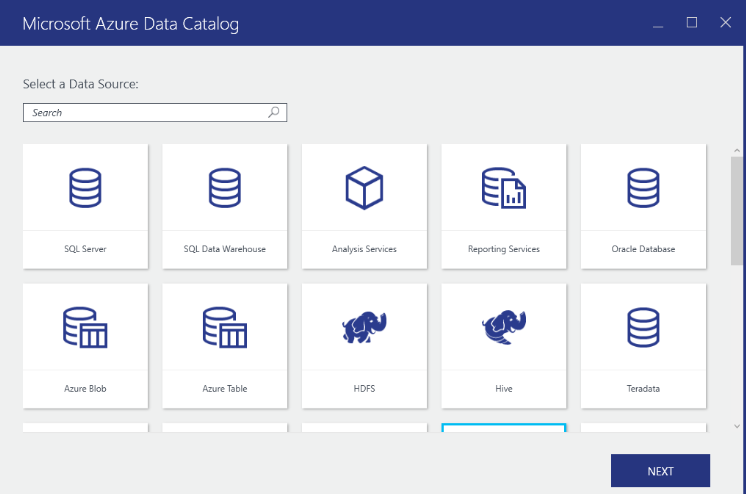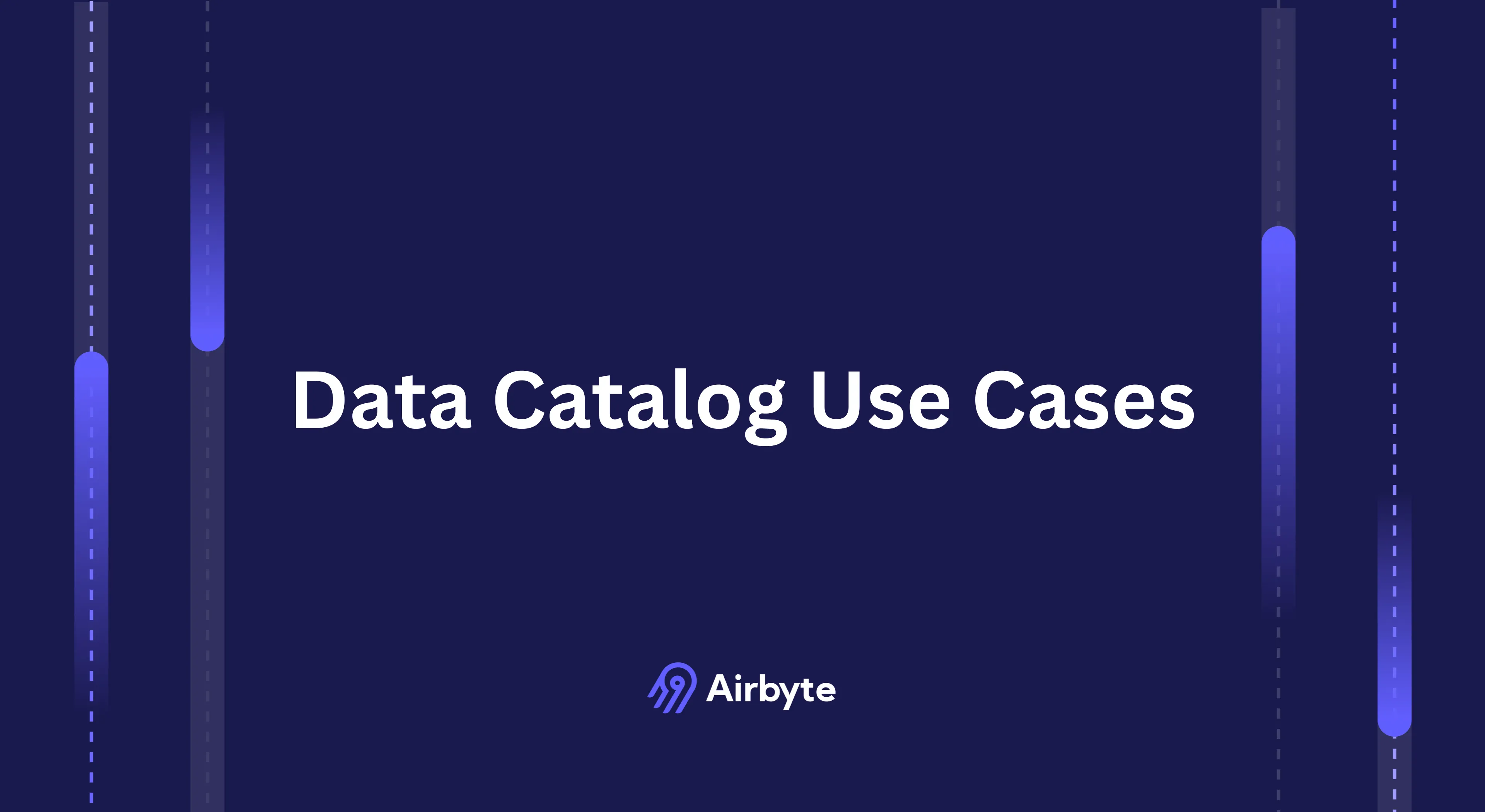Top Data Catalog Use Cases: Streamline Data Discovery & Governance
Summarize this article with:
✨ AI Generated Summary
Your organization faces inefficiencies as analysts spend 82% of their time finding and understanding data rather than analyzing it. Implementing a data catalog provides a unified, searchable inventory of data assets, improving data discovery, accessibility, governance, and quality management.
- Data catalogs enhance metadata management, data lineage tracking, and compliance with regulations like GDPR and CCPA.
- They enable self-service analytics and foster collaboration by breaking down data silos.
- Platforms like Airbyte support data cataloging by offering extensive connectors, schema propagation, PII masking, and integration of unstructured data.
Your organization manages vast amounts of data originating from diverse sources and in various formats. This data is key to your business strategy and is central to making strategic business decisions. However, research shows that analysts spend 82% of their time finding, understanding, and accessing data and only 18% on analysis. This inefficiency can hinder your ability to leverage data effectively.
To address this challenge, you must consider implementing data catalogs to gain a unified view of all your data. By providing comprehensive metadata and context, it enhances trust and confidence in the data being used. This leads to enhanced productivity and operational efficiency, enabling you to focus on analysis. Without a data catalog, you may struggle to become truly data-driven as your data remains siloed across the organization.
In this blog, you will look into the key data catalog use cases for efficient data management.
What is a Data Catalog?
A data catalog is an organized inventory of all data assets in your organization. It helps you quickly find the most appropriate data for any analytical or business purpose. A data catalog uses metadata (data that describes or summarizes data) to build an informative and searchable listing of all the available data resources.
For example, Azure Data Catalog is enterprise-wide metadata that enables self-service data asset discovery. It provides capabilities that empower you to register, discover, understand, and consume data sources effortlessly. Azure Data Catalog also facilitates collaboration by letting users share insights and knowledge about data assets.

7 Practical Use Cases of Data Catalog
Let’s explore some of the data catalog use cases in detail:
Data Discovery & Accessibility
By providing a centralized view of data, a data catalog helps you to quickly locate and understand the data assets. This improved data discoverability leads to more efficient utilization of organizational data. You can search by keywords or specific attributes of the data you’re looking for and apply filters like data source type and classification to further narrow down the results.
A data catalog also promotes data accessibility by breaking down silos and ensuring that data is easily accessible to authorized individuals. This transparency fosters collaboration and knowledge sharing as you can access the required data to generate valuable insights.
Compliance & Governance
By offering detailed metadata about data sources, lineage, and usage, a data catalog facilitates transparency and accountability. This is essential for identifying and managing sensitive data like personally identifiable information (PII), which is vital for adhering to regulations like GDPR and CCPA.
Additionally, a data catalog helps with governance by standardizing data definitions and policies around data management. This reduces the risks associated with data quality so that data used for decision-making is accurate and trustworthy.
Metadata Management
A data catalog enhances metadata management through advanced features like data profiling, tagging, and relationship mapping. To organize metadata effectively, you need to automate the collection of metadata from different data sources. This will include technical metadata (e.g., schemas, tables, columns, file names) and business metadata (e.g., descriptions, annotations).
Once curated, you can then enrich metadata by adding context, like categorizing sensitive data or labeling datasets with business terms. This ensures that the data catalog serves not only as a technical resource but also as a user-friendly tool that offers valuable insights into the data.
Data Lineage and Impact Analysis
Understanding the origin, usage, and transformation of data is crucial for your organization. A data catalog lets you maintain the data lifecycle by enabling you to catalog data lineage. This helps maintain the data integrity, aids troubleshooting, and supports compliance requirements. With a clear view of data lineage, you can perform impact analysis effectively. You can evaluate how changes to a data source or transformation process will affect downstream data consumers.
Data Quality Management
Poor data quality can have a high negative impact on your business operations. Data catalogs support data quality initiatives by enabling data profiling and validation checks. Data stewards and analysts can assess data quality metrics, identify data anomalies, and take corrective actions to maintain high-quality data.
Data Lifecycle Management
Your organization might generate a vast amount of data every day, so you need to have a structured way to manage it. A data catalog facilitates this by documenting the data lifecycle, including collection, storage, use, archive and deletion. By having visibility into these stages you can optimize the storage and reduce costs associated with unnecessary data retention.
Self Service Analytics
A data catalog is crucial for enabling self-service analytics, facilitating users to explore and analyze data independently. AI-powered intelligent catalogs help discover and organize data assets, providing detailed reports and dashboards. They also promote collaboration between business users and data teams, empowering users to access the data they need through self-service features.
How Airbyte Helps with Data Cataloging?
By now, you have understood the importance of data catalogs in harnessing the potential of your data. As your data grows, it will be quite challenging to keep your data catalogs up to date. That's where data integration platforms like Airbyte can help.
Airbyte offers a vast catalog of over 400+ pre-built connectors, enabling you to synchronize your data from diverse sources to your preferred destination. By centralizing all your data, Airbyte gives you a single view that makes it easier to manage and process large volumes of data flowing into your organization.
Additionally, Airbyte has a special Document File Type Format that lets you pull text from different types of documents such as PDFs, Word, PowerPoint, and Google Docs. The text content of the document is extracted and emitted as markdown to preserve structural elements like headings or lists from the original document. This helps you integrate unstructured data into the workflows easily.

Here are some of the key features of Airbyte:
Custom Connectors: If you're unable to find the necessary connector from the pre-built library, consider using the Connector Development Kit (CDK) to create one. With CDK, you can build custom connectors in less than 30 minutes.
GenAI Workflows: With Airbyte, you can streamline your GenAI workflows with AI-optimized data warehousing and RAG-specific transformations. It also enables you to fine-tune your ML models with the latest data needed for data model training.
CDC: To track metadata changes and update your datasets regularly, you can leverage Airbyte’s CDC capabilities. Select a sync interval to capture changes from the source. Airbyte log changes to the dataset after each sync so you have full visibility into your data flows.
Schema Propagation: With schema propagation, you can specify how Airbyte should handle any change of schema in the source. When setting up a connection, you can also mention Airbyte to automatically replicate any new field or stream that will be added to the source in the future.
PII Masking: Airbyte safeguards sensitive information by hashing personally identifiable information (PII) as it moves through your data pipelines. This minimizes the risk of potential breaches and ensures compliance with privacy regulations.
Wrapping Up
This article provided key data catalog use case examples, highlighting their critical role in modern data management. A well-implemented data catalog fosters collaboration across departments, effectively breaking down silos that often impede data utilization. It helps you gain visibility into your data ecosystem, enhance data governance, and promote data-driven decision-making.

